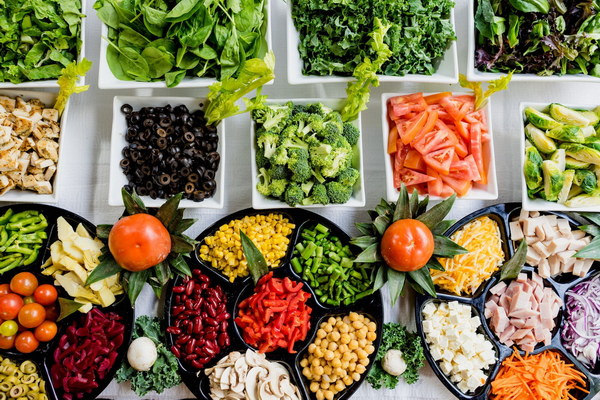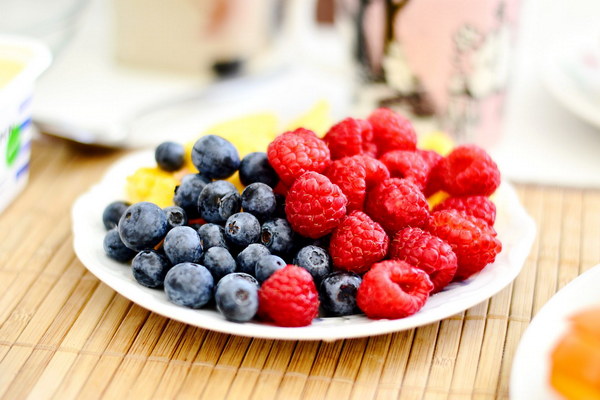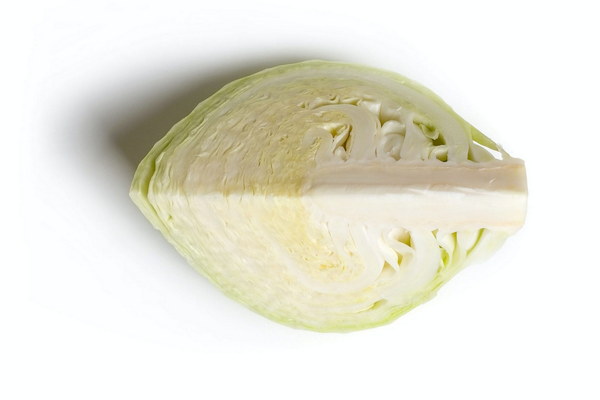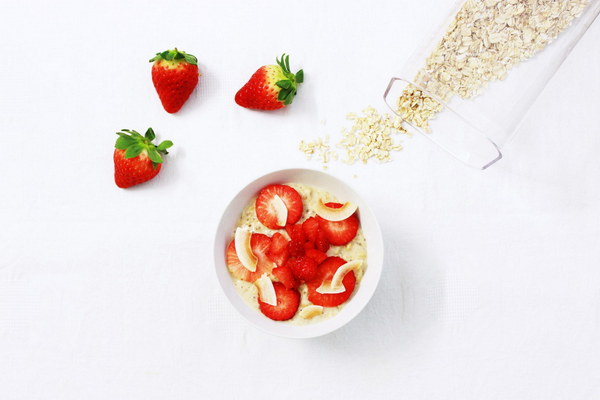Unlocking Nutritional Power A Comprehensive Guide to Fortifying Your Vegan Diet
In recent years, the popularity of veganism has surged as more people adopt a plant-based lifestyle for various reasons, including health, environmental concerns, and ethical choices. However, one of the most common concerns among those transitioning to veganism is ensuring they receive adequate nutrition. This article aims to provide a comprehensive guide on how to fortify your vegan diet with essential nutrients to lead a healthy and vibrant life.
1. Understanding Your Nutritional Needs
Before diving into specific nutrients, it's crucial to understand your individual nutritional needs. These needs can vary based on age, sex, weight, height, and level of physical activity. For instance, women require more iron and calcium than men, and athletes may need additional protein and other nutrients.
1.1. Protein
Protein is essential for muscle repair, growth, and overall health. While many believe that animal products are the only source of high-quality protein, there are numerous plant-based options:
- Legumes: Lentils, chickpeas, and beans are excellent sources of protein.
- Tofu and Tempeh: Made from soybeans, these products are versatile and can be used in various recipes.
- Nuts and Seeds: Almonds, chia seeds, and flaxseeds are great protein sources.
- Quinoa: This grain is not only a complete protein but also rich in fiber and other nutrients.
1.2. Iron
Iron is vital for transporting oxygen in the blood. Plant-based iron can be found in:

- Leafy Greens: Spinach, kale, and Swiss chard are rich in iron.
- Beans and Lentils: These legumes contain both heme and non-heme iron.
- Fortified Cereals: Opt for cereals fortified with iron to ensure you meet your daily needs.
1.3. Calcium
Calcium is essential for bone health and muscle function. Some plant-based sources of calcium include:
- Almonds and Almond Milk: These contain calcium, and almond milk can be fortified.
- Broccoli: This vegetable is a good source of calcium.
- Fortified Plant Milks: Look for plant milks fortified with calcium, such as oat milk and rice milk.
1.4. Omega-3 Fatty Acids
Omega-3 fatty acids are crucial for heart health and inflammation reduction. While some can be obtained from flaxseeds, chia seeds, and walnuts, algae-based supplements are an excellent vegan source.
2. Vitamin B12
Vitamin B12 is a vital nutrient that plays a role in red blood cell formation and neurological function. Since it's not naturally available in plant-based foods, it's essential to supplement:
- B12 Fortified Foods: Look for plant-based milk, cereals, and nutritional yeast fortified with B12.
- B12 Supplements: Consider a B12 supplement to ensure adequate intake.
3. Vitamin D
Vitamin D is essential for bone health and immune function. While sunlight is a primary source, some fortified plant-based foods can help:
- Fortified Plant Milks: Check for vitamin D-fortified oat milk, rice milk, and almond milk.
- Supplements: Vitamin D supplements are also an excellent option.
4. Iodine
Iodine is crucial for thyroid function. Seaweed is a natural source of iodine, and some plant-based foods are fortified:
- Seaweed: Nori and kelp are excellent sources of iodine.
- Fortified Plant Milks: Some plant-based milk brands add iodine to their products.
5. Zinc
Zinc is essential for immune function, wound healing, and cell division. Some plant-based sources of zinc include:
- Nuts and Seeds: Almonds, chia seeds, and flaxseeds are rich in zinc.
- Legumes: Lentils, chickpeas, and beans also contain zinc.
- Fortified Cereals: Opt for cereals fortified with zinc to meet your daily needs.
In conclusion, a well-balanced vegan diet can provide all the necessary nutrients for good health. By understanding your nutritional needs and incorporating a variety of plant-based foods, you can ensure you're getting the essential nutrients to thrive. Remember to consult with a healthcare professional or a dietitian to tailor your diet to your specific needs and to address any potential deficiencies. With the right approach, a vegan diet can be a powerful tool for achieving optimal health and well-being.









